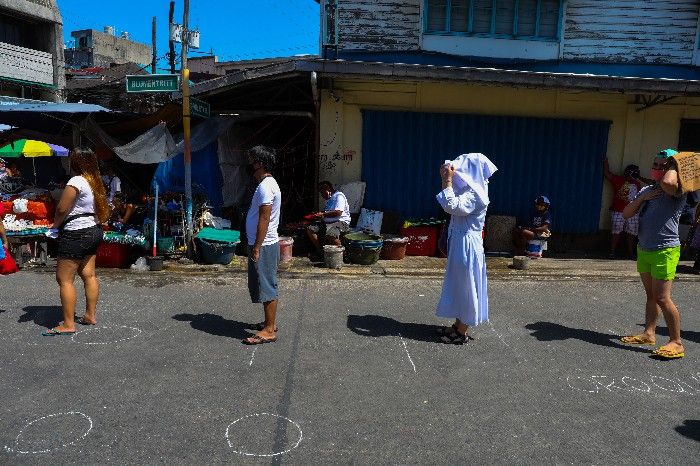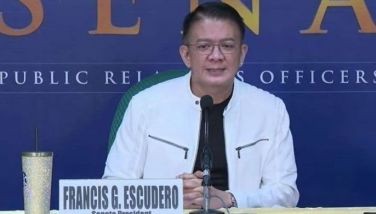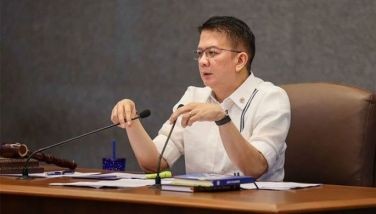'We cannot go back': General Community Quarantine is the 'new normal,' Malacañang says

MANILA, Philippines — Malacañang on Sunday said that the general community quarantine hoisted over cities classified as low-risk areas will be the new normal for the time being until a vaccine for the novel coronavirus disease 2019 (COVID-19) is developed.
President Duterte on Friday approved the Inter-Agency Task Force for the Management of Emerging Infectious Diseases' (IATF) recommendation to extend the enhanced community quarantine in high-risk areas, including Metro Manila, until at least May 15.
In an interview with DZMM on Sunday morning, presidential spokesperson Harry Roque said that the Philippines cannot return to life as usual because of the overwhelming effects of the global pandemic.
“We are no longer back to normal as we know it po. The GCQ is already that, it is the new normal. For as long as there is still no vaccine, we cannot go back to normal as we know it,” he said in a mix of English and Filipino.
READ: Duterte places entire Luzon under 'enhanced' community quarantine
Luzon is at the tailend of its fifth week of an enhanced community quarantine that is expected to go on until at least mid-May, while areas under general community quarantine are under a more relaxed set of guidelines, including:
- Some workers and industries are allowed to resume work
- The young (below 20) and the elderly (above 60) may not leave their homes
- Institutions of higher education may continue their classes
- Full operations are recommended for agriculture, forestry, fisheries, food manufacturing and all supply chains, including ink, packaging and raw materials, supermarkets, hospitals, logistics, water, energy, internet, telecommunications and media
- Non-leisure stores may open partially
- Public transportation must ensure social distancing by operating at reduced capacity
“We are just giving a chance to local economies in places under the GCQ to somehow start again, but normal, as we know it, we won’t be able to go back to that,” Roque said.
'More exemptions under GCQ'
Low-risk areas were placed by the IATF under a more relaxed general community quarantine, which Police Maj. Gen. Guillermo Eleazar, commander of joint task force COVID-19 shield, said would free up more movement.
The national government on Friday declared that areas which are considered moderate and low-risk in the spread of #COVID19 will be placed under general community quarantine, while areas that are high-risk will be under an extended ECQ.
Read story here: https://t.co/DjxPGCCm0y pic.twitter.com/HCSfflgi35— Philstar.com (@PhilstarNews) April 24, 2020
In a separate interview also with DZMM, Eleazar said that the initial community quarantine was "in essence the general community quarantine."
"Since Day One of ECQ, we based our enforcement so that only those authorized persons could go outside their homes. What I want to put emphasis on right now is that while it is true that generally the list we have for now, that's what we're going to use now," he said.
READ: General community quarantine to be implemented in moderate, low-risk areas
"For the GCQ, we'll release a new UPOR list. Aside from the list, we'll add others who are exempted. The GCQ is more relaxed than the ECQ. Right now, we're still waiting for directives from the IATF," he added.
If you believe you have come into possible contact with infected patients, you may be directed to the proper office of the Department of Health for advice through the following lines: (632) 8651-7800 local 1149/1150 or (632) 165-364.
You may also opt to call the Research Institute for Tropical Medicine at (02) 8807-2631/ 8807-2632/ 8807-2637. The general public has also been encouraged to forward its concerns to the Health Department's dedicated 24/7 COVID-19 hotlines (02) 894-COVID and 1555 (free for all subscribers).
- Latest
- Trending




































